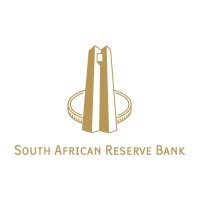Brief description
The main purpose of this position is to perform prudential oversight of designated registered banks through off-site and on-site monitoring, analysis and supervision, thereby contributing to the financial soundness and sound governance of such entities and the safety and soundness of the financial sector.
Detailed description
The successful candidate will be responsible for the following key performance areas:
- Provide oversight of designated banks and participate in supervisory practices.
- Analyse and assess the strategies, business models and business portfolios of banks.
- Analyse, monitor and form a view of the risks banks are exposed to (i.e. credit, liquidity, market, capital and operational risks) and the impact thereof on their risk profiles.
- Assess compliance with the Banks Act 94 of 1990 (Banks Act), Financial Sector Regulation Act 9 of 2017 (FSR Act), Regulations relating to Banks and all prudential and regulatory requirements.
- Analyse and assess the evolving economic and operating environment and the impact thereof on banks’ risk profiles.
- Analyse and interpret financial and risk information, including risk-based regulatory data submissions and their alignment to industry best practices.
- Contribute to and participate in risk-based meetings with banks and their auditors.
- Prepare detailed reports based on the outcomes of analyses.
- Manage correspondence and maintain electronic records in line with operational standards.
- Contribute towards the attainment of departmental strategic objectives.
- Contribute towards the attainment of operational objectives.
Job requirements
To be considered for this position, candidates must be in possession of:
- a postgraduate qualification (NQF 8) in Accounting, Banking, Economics, Finance, Risk Management or a relevant equivalent qualification; and
- two years’ relevant working experience in a regulatory environment or the financial sector.
Additional requirements include:
- problem-solving and analytical skills;
- financial and business acumen;
- attention to detail;
- verbal and written communication skills;
- time management skills;
- good working knowledge of the Microsoft Office suite (Word, Excel and PowerPoint) and other related software packages;
- knowledge of the Banks Act, FSR Act and related standards and regulations;
- knowledge and understanding of the Basel Committee on Banking Supervision’s (BCBS) Core Principles for Effective Banking Supervision;
- knowledge and understanding of the BCBS’s supervisory framework;
- knowledge of prudential supervision and the supervisory framework applied in South Africa;
- knowledge of basic risk management standards and practices applied by banks and banking groups;
- an understanding of key issues and risks banks and banking groups are facing;
- in-depth knowledge of the business of banks;
- an understanding of the business models applied by banks and their financial and operating environment; and
- knowledge and understanding of corporate governance and risk management best practices and standards.
About SARB
Primary mandate of the SARB
Section 224 of the Constitution of South Africa states the mandate of the SARB as follows:
The primary object of the South African Reserve Bank is to protect the value of the currency in the interest of balanced and sustainable economic growth in the Republic.
The South African Reserve Bank, in support of its primary objective, must perform its functions independently and without fear, favour or prejudice.
WHAT WE DO
Monetary Policy
The Constitution gives the SARB the mandate to protect the value of the rand. We use interest rates to keep inflation low and steady.
Financial Stability
The SARB has a mandate to protect and enhance financial stability. We identify and mitigate systemic risks that might disrupt the financial system.
Prudential Regulation
The Prudential Authority regulates financial institutions and market infrastructures to promote and enhance their safety and soundness, and support financial stability.
Financial Markets
Open market operations are the main tool we use to implement monetary policy. We manage South Africa’s gold and foreign exchange reserves.
Financial Surveillance
The SARB is responsible for regulating cross-border transactions, preventing the abuse of the financial system and supporting the regulation of financial institutions.
Payments and Settlements
The SARB is responsible for ensuring the safety and soundness of the national payment system, which is the backbone of South Africa’s modern financial system.
Statistics
The SARB provides important economic and financial statistics that present an overview of the economic situation in South Africa.
Research
Research conducted by the SARB focuses on economics, financial stability, banking and emerging trends in finance. Our research supports policy decision-making.
Banknotes and Coin
The SARB has the sole right to make, issue and destroy banknotes and coin in South Africa.


